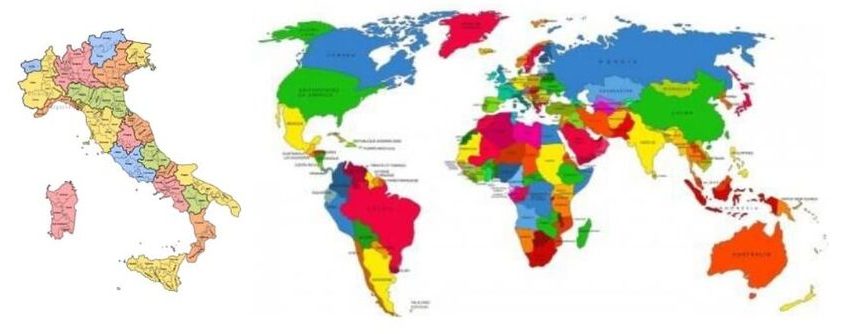Regions and local authorities in International Cooperation

06/10/2022
Last October 3 LINK 2007 presented an in-depth document on the international cooperation of regions, autonomous provinces and local authorities . He proposed it to the National Council for Development Cooperation of the Ministry of Foreign Affairs and International Cooperation. Composed of representatives of government institutions and interested public and private profit and non-profit bodies, the CNCS has in fact created a working group aimed at territorial partnerships between Italian regions and municipalities and regions and municipalities of developing countries. Law 125 of 2014, indicating the territorial partnerships ,recognized the centrality of proximity and subsidiarity in cooperation interventions for human and sustainable development that are carried out by territories and between territories.
Partnership is a keyword of the law : not only between states, administrations and state public bodies but also between territories, communities, with their social and third sector organizations, professional associations, educational, cultural and scientific institutions, private sector companies and etc.
LINK 2007 wanted to deepen the experience of the international cooperation of the regions and local authorities from the 80s until today and tried to identify, within the current regulations, conditions and paths for a path of quality and effectiveness, as well as mutual interest, for territorial cooperation. The document produced, entitled “Territorial partnerships of regions and local authorities in international cooperation relations for sustainable development, human rights, peace” , consists of ten chapters.
They summarize themes ranging from the examination of the experience acquired in the decades between the two centuries to the new legislative guidelines including constitutional ones, to the direct action of the administrations and the support they give to local organizations engaged in developing countries, the importance of civil society organizations and organized diasporas, the opportunities for businesses, the growing role of cities and the parallel importance of rural areas, the inadequacy of the logic of tenders and multi-year plans and territorial pacts with a vision of system, to some considerations to ensure the quality of territorial partnerships for the purposes of development and peace and the efficiency and effectiveness of the initiatives.
It is not a question of identifying “a project” but of building multi-stakeholder participation methods in the partner local realities, involving administrations and communities together in the civil society and business components, following long-term framework agreements, signed after a careful assessment of the needs, opportunities, the respective areas of feasible and incisive intervention, the legitimate interests of the parties and the benefits of human and sustainable development that can derive from them. Based, on the one hand, on territorial pacts that translate this shared determination and, on the other, on agreements with national institutionsto guarantee coherence with the priorities and government guidelines of foreign policy and development cooperation.
According to LINK 2007, one thing is certain: today more than ever, the world needs a widespread network of relationships between communities and institutions , mutual knowledge, understanding of diversity and collaboration for a common interest in peace, careful use of resources, safeguarding the planet, shared well-being, contributing to overcoming divisions and tearing down walls.
